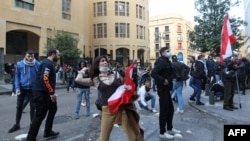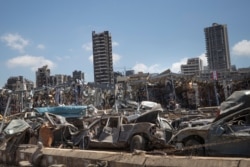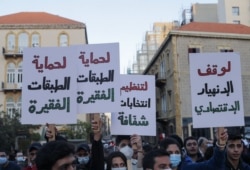A U.N. official warns political polarization in Lebanon is blocking progress on key reforms and worsening the already dismal socio-economic situation in the country.
U.N. Deputy Special Coordinator for Lebanon Najat Rochdi says Lebanon is in a state of political paralysis and has been without a fully empowered government since the devastating Beirut port explosion last August.
The explosion of a large amount of ammonium nitrate stored in Lebanon's capital city killed at least 210 people, injured 7,500, rendered 300,000 people homeless and caused $15 billion in property damage.
Seven months later, Rochdi says no progress has been made that would allow families to heal. She says the country's civic space appears to be shrinking, and incidents of harassment, repression and hate speech against certain public figures or activists are increasing.
The worsening socio-economic and humanitarian situation is causing tensions to mount between communities, she adds.
"As Lebanon continues to suffer from the worst economic and financial crisis in its modern history, while grappling with the COVID-19 outbreak and the political stalemate, we are now in a race to support an increasing number of people who are falling beyond poverty into despair," Rochdi said.
U.N. and private agencies have just completed a comprehensive needs assessment of the country, which found more than 1 million Syrian refugees, as well as nearly 900,000 Lebanese individuals, 200,000 Palestinian refugees and 50,000 migrant and domestic workers in need of emergency assistance. Rochdi says food insecurity and chronic malnutrition are increasing among all those groups.
She says the government must listen to the grievances of its people, and allow them to participate in the political process.
"In this spirit, the United Nations has been intensifying support for women's political representation and participation in the 2022 elections," Rochdi said. "But to restore public trust in government institutions and political leadership, the election must take place on time without any undue delay."
In the meantime, she says the parliament and the caretaker government must fully assume their responsibilities to keep the country afloat. Among the many vital issues to be addressed is the Beirut port explosion, which Rochdi says requires a swift and transparent investigation.













